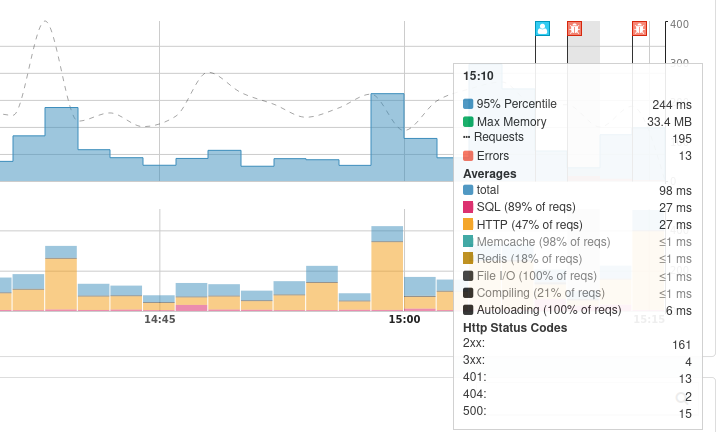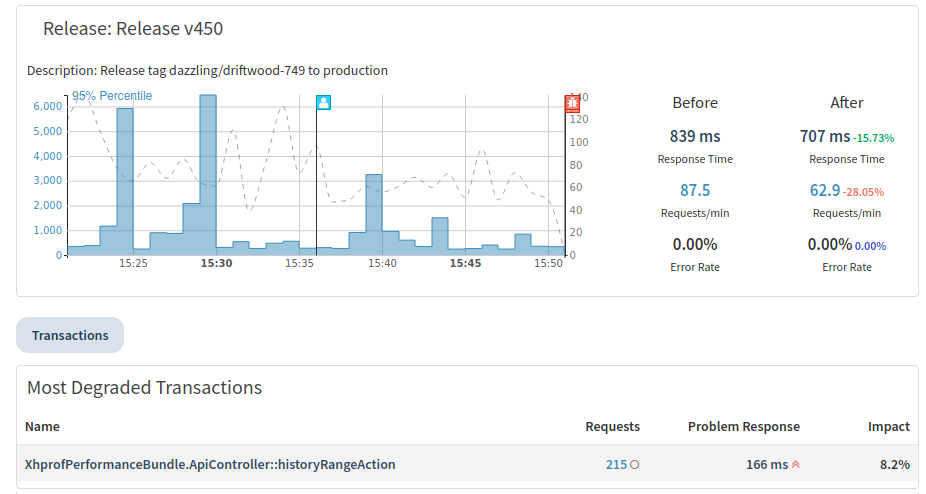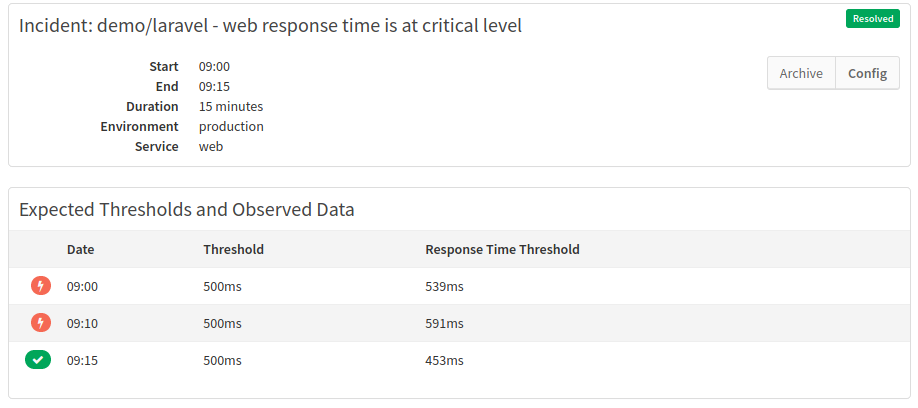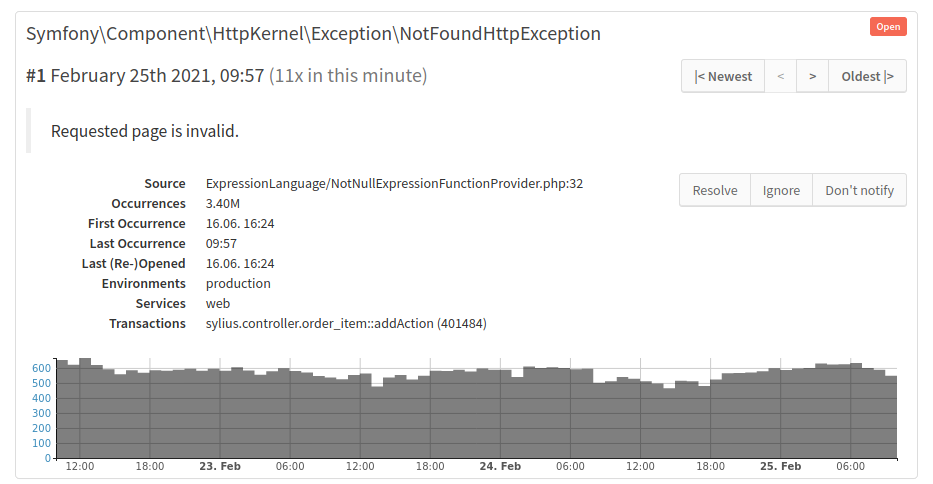Winter is clearly over here, the sun is shining, which means it is time to sum up everything that is new in the Tideways Winter 2021 release.
- HTTP Status Code Monitoring
- Deployments UI
- Incidents UI
- Improvements to Error/Exception Workflow
- Filtering by Custom Annotations in Traces List
- Improvements to Autoloading Layer Computation
- PHPStorm IDE Stubs
- Dialog to change Billing E-Mail Addresses
Aside from this blog post explaining the new features in detail and the documentation, we also recorded the 34 minute webinar about the release:
Tideways Winter Season 2021 Release Webinar
HTTP Status Code Monitoring
To complement the requests and errors counters in monitoring, Tideways now also tracks the HTTP status codes that an application responds with. This will enable a better understanding of the type of traffic that might cause a change in performance.

The common client and server error codes are tracked individually and other codes are grouped into 100s, 200s, 300s, 400s and 500s.
See the documentation for details
Deployments UI
In addition to viewing deployment comparisons from notifications or from the markers on the monitoring chart there is now a list of all deployments under “Issues” and then select “Deployments”.

Incidents UI
In addition to viewing incidents from notifications or markers on the monitoring chart there is now a list of all incidents triggered by response time or error rate notifications under “Issues” and then select “Incidents”.

Improvements to Errors/Exception Workflow
The workflow options for each error or exception have been rephrased to be more clear.
You now “Ignore” an exception from error notifications and prevent the errors from being counted towards the global “Errors” number in monitoring. Previously this workflow operation was called “Not Error”.
This is done based on the fingerprint of the error/exception, which is computed based on the class name of the error and its stacktrace.
You can then strengthen to “Always Ignore” to ignore exceptions based on their class name only, regardless of where the error occurs in terms of stacktrace.

Lastly, ignored errors and exceptions are not filtered on the daemon anymore, so that you can still see when and how often an ignored error occurred.
See the documentation for details
Filtering by Custom Annotations in Traces List
The advanced query syntax for trace filtering now allows for conditions on custom metadata annotations that are added to a trace.
If you add a custom annotation “user_id” to every trace then a query could look like this:
annotations.user_id = '100' Additionally, we improved the error handling for invalid syntax, including better error messages shown in the UI.
The documentation on the advanced query syntax has gotten an update as well to show all options and examples.
Improvements to Autoloading Layer Computation
In last season’s release, Autoloading was added to the downstream layers in monitoring. We made a conceptual mistake where autoloading included File I/O and compile time that was seperately counted already, effectively counting this information twice. This is now fixed and in downstream layers the autoloading timer counts the duration autoloading spent in everything except File I/O and Compiliation.
PHPStorm IDE Stubs
When working with the Tideways PHP Extension API, IDEs cannot usually provide autocomplete details. With the IDE Stub Composer package added to a project autocomplete information becomes available.
Just require the package to load the stub code into your projects vendor dependencies:
composer require --dev tideways/ext-tideways-stubs See the documentation for details
Dialog to change Billing E-Mail Addresses
In the billing administration it is now possible to change the billing e-mail address as a self-service operation, including adding additional billing e-mail recipients.
See the documentation for details
Photo by Jean-Daniel Calame on Unsplash
